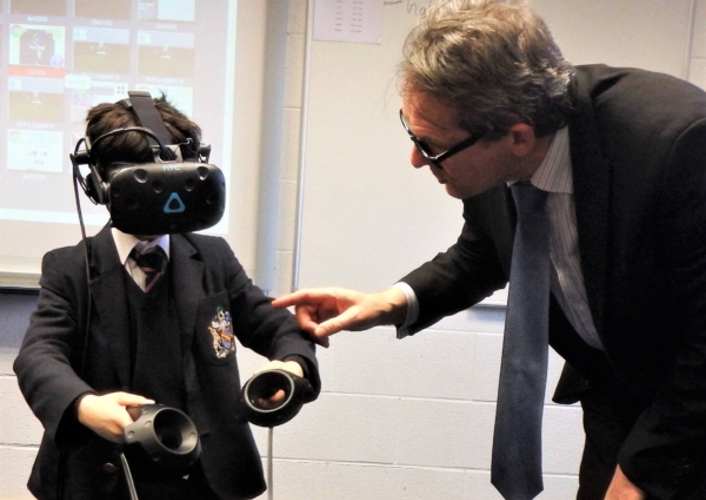Growth Headset? - The Report

This is not about software or hardware; it’s about deepening learning.
Each time a new technology has been launched, it seems that it is only a matter of days before teachers have found ways to harness its power in the service of education. Over the past twenty years, videos, DVDs, classroom projectors, interactive whiteboards, 3D projectors and computer games have been recruited to further improve the learning experience of their pupils. Now teachers can add Virtual/Augmented Reality (VR/AR) technologies to their armoury.
VR/AR technologies are still in their infancy but there are already signs that this is a much more powerful technology than their more passive predecessors. The lessons from the pioneers are that VR/AR are not just another way of conveying information, but there is something distinctively powerful about the fact that the viewer is in control. This makes the experience active and so immersive that they evoke an emotional as well as a rational response.
We know that each invention that is deployed in schools requires the development of an effective pedagogy which enables teachers to get the most out of the new technology. This, in turn, poses several important questions about the value and effectiveness of the new technology in promoting learning, understanding, empathy and in improving learning outcomes. With the luxury of hindsight, too many schools deployed new technologies without really knowing what they were doing or why they were doing it. History teaches us that effective implementation is facilitated by twin drivers of collaboration and research. This project launched by the Independent Schools Council Digital Strategy Group needs to be seen in this context.
There is no doubt there is great potential for the use of AR and VR to enrich learning, to deepen understanding and, perhaps above all, to develop empathy. To harness the power of any new technology, schools need to go through four stages of adoption. Firstly, we might simply play, to get a sense of how the technology works and what it can do. Then, we start to experiment in educational contexts to find out how VR/AR might enhance learning. It’s only once we’ve been through these initial phases of investigation, experimentation and research that we can move to the innovation stage where we start to design new learning experiences that can truly harness the power of the technology. Finally, there I believe that AR/VR has the potential to be a disruptor of education by being a vehicle for new model for schooling.
One thing is clear: in 2018, the time has come for more schools to start experimenting with VR/AR, conducting research and gathering evidence to help us understand how to develop the pedagogy to make the best use the technology. Furthermore, we need to develop policies and protocols to disseminate best practice to other schools. Thus, the Growth Headset report is timely. It provides some initial insight into how VR/AR might be deployed in schools and seeks to answer some of the important questions about the place that Virtual Reality and Augmented Reality might play in schools over the coming years.
We are so lucky that the research for this publication has been carried out and written by Dr James Mannion (@RethinkingJames) an education researcher and consultant who worked as a Science teacher for 12 years and spent 8 years in school leadership roles. The content draws from the expertise and experiences of an extended pilot and everyone currently striving to develop the use of the medium both in education and in business. You will see many of those involved in the research in the picture above, from the Hackmeet at RGS Newcastle in May this year.
We are delighted that Mark Steed has provided the forward whose JESS schools are pioneering the use of technology in the classroom, through the likes of VR guru Steve Bambury but if it wasn’t for the generous support from our partnerships with Microsoft, Intel, SystemActive and HP this great resource for schools would not have been produced.
We are delighted to be able to share this report with you. Please click here to download.
